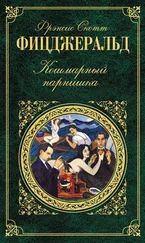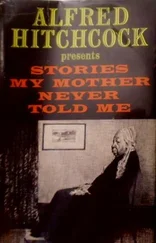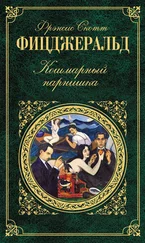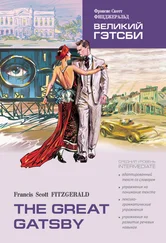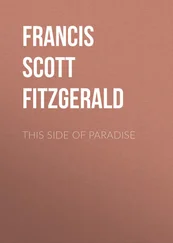Фрэнсис Фицджеральд - This Side of Paradise
Здесь есть возможность читать онлайн «Фрэнсис Фицджеральд - This Side of Paradise» — ознакомительный отрывок электронной книги совершенно бесплатно, а после прочтения отрывка купить полную версию. В некоторых случаях можно слушать аудио, скачать через торрент в формате fb2 и присутствует краткое содержание. Год выпуска: 2014, Издательство: epubBooks Classics, Жанр: Классическая проза, на английском языке. Описание произведения, (предисловие) а так же отзывы посетителей доступны на портале библиотеки ЛибКат.
- Название:This Side of Paradise
- Автор:
- Издательство:epubBooks Classics
- Жанр:
- Год:2014
- ISBN:нет данных
- Рейтинг книги:5 / 5. Голосов: 1
-
Избранное:Добавить в избранное
- Отзывы:
-
Ваша оценка:
- 100
- 1
- 2
- 3
- 4
- 5
This Side of Paradise: краткое содержание, описание и аннотация
Предлагаем к чтению аннотацию, описание, краткое содержание или предисловие (зависит от того, что написал сам автор книги «This Side of Paradise»). Если вы не нашли необходимую информацию о книге — напишите в комментариях, мы постараемся отыскать её.
This Side of Paradise — читать онлайн ознакомительный отрывок
Ниже представлен текст книги, разбитый по страницам. Система сохранения места последней прочитанной страницы, позволяет с удобством читать онлайн бесплатно книгу «This Side of Paradise», без необходимости каждый раз заново искать на чём Вы остановились. Поставьте закладку, и сможете в любой момент перейти на страницу, на которой закончили чтение.
Интервал:
Закладка:
A day later came a crisp, terse letter from Mr. Barton in Chicago, which informed him that as three more street–car companies had gone into the hands of receivers he could expect for the present no further remittances. Last of all, on a dazed Sunday night, a telegram told him of Monsignor Darcy's sudden death in Philadelphia five days before.
He knew then what it was that he had perceived among the curtains of the room in Atlantic City.
Chapter 5.
The Egotist Becomes a Personage
"A fathom deep in sleep I lie
With old desires, restrained before,
To clamor lifeward with a cry,
As dark flies out the greying door;
And so in quest of creeds to share
I seek assertive day again…
But old monotony is there:
Endless avenues of rain.
Oh, might I rise again! Might I
Throw off the heat of that old wine,
See the new morning mass the sky
With fairy towers, line on line;
Find each mirage in the high air
A symbol, not a dream again…
But old monotony is there:
Endless avenues of rain."
Under the glass portcullis of a theatre Amory stood, watching the first great drops of rain splatter down and flatten to dark stains on the sidewalk. The air became gray and opalescent; a solitary light suddenly outlined a window over the way; then another light; then a hundred more danced and glimmered into vision. Under his feet a thick, iron–studded skylight turned yellow; in the street the lamps of the taxi–cabs sent out glistening sheens along the already black pavement. The unwelcome November rain had perversely stolen the day's last hour and pawned it with that ancient fence, the night.
The silence of the theatre behind him ended with a curious snapping sound, followed by the heavy roaring of a rising crowd and the interlaced clatter of many voices. The matinee was over.
He stood aside, edged a little into the rain to let the throng pass. A small boy rushed out, sniffed in the damp, fresh air and turned up the collar of his coat; came three or four couples in a great hurry; came a further scattering of people whose eyes as they emerged glanced invariably, first at the wet street, then at the rain–filled air, finally at the dismal sky; last a dense, strolling mass that depressed him with its heavy odor compounded of the tobacco smell of the men and the fetid sensuousness of stale powder on women. After the thick crowd came another scattering; a stray half–dozen; a man on crutches; finally the rattling bang of folding seats inside announced that the ushers were at work.
New York seemed not so much awakening as turning over in its bed. Pallid men rushed by, pinching together their coat–collars; a great swarm of tired, magpie girls from a department–store crowded along with shrieks of strident laughter, three to an umbrella; a squad of marching policemen passed, already miraculously protected by oilskin capes.
The rain gave Amory a feeling of detachment, and the numerous unpleasant aspects of city life without money occurred to him in threatening procession. There was the ghastly, stinking crush of the subway—the car cards thrusting themselves at one, leering out like dull bores who grab your arm with another story; the querulous worry as to whether some one isn't leaning on you; a man deciding not to give his seat to a woman, hating her for it; the woman hating him for not doing it; at worst a squalid phantasmagoria of breath, and old cloth on human bodies and the smells of the food men ate—at best just people—too hot or too cold, tired, worried.
He pictured the rooms where these people lived—where the patterns of the blistered wall–papers were heavy reiterated sunflowers on green and yellow backgrounds, where there were tin bathtubs and gloomy hallways and verdureless, unnamable spaces in back of the buildings; where even love dressed as seduction—a sordid murder around the corner, illicit motherhood in the flat above. And always there was the economical stuffiness of indoor winter, and the long summers, nightmares of perspiration between sticky enveloping walls…dirty restaurants where careless, tired people helped themselves to sugar with their own used coffee–spoons, leaving hard brown deposits in the bowl.
It was not so bad where there were only men or else only women; it was when they were vilely herded that it all seemed so rotten. It was some shame that women gave off at having men see them tired and poor—it was some disgust that men had for women who were tired and poor. It was dirtier than any battle–field he had seen, harder to contemplate than any actual hardship moulded of mire and sweat and danger, it was an atmosphere wherein birth and marriage and death were loathsome, secret things.
He remembered one day in the subway when a delivery boy had brought in a great funeral wreath of fresh flowers, how the smell of it had suddenly cleared the air and given every one in the car a momentary glow.
"I detest poor people," thought Amory suddenly. "I hate them for being poor. Poverty may have been beautiful once, but it's rotten now. It's the ugliest thing in the world. It's essentially cleaner to be corrupt and rich than it is to be innocent and poor." He seemed to see again a figure whose significance had once impressed him—a well–dressed young man gazing from a club window on Fifth Avenue and saying something to his companion with a look of utter disgust. Probably, thought Amory, what he said was: "My God! Aren't people horrible!"
Never before in his life had Amory considered poor people. He thought cynically how completely he was lacking in all human sympathy. O. Henry had found in these people romance, pathos, love, hate—Amory saw only coarseness, physical filth, and stupidity. He made no self–accusations: never any more did he reproach himself for feelings that were natural and sincere. He accepted all his reactions as a part of him, unchangeable, unmoral. This problem of poverty transformed, magnified, attached to some grander, more dignified attitude might some day even be his problem; at present it roused only his profound distaste.
He walked over to Fifth Avenue, dodging the blind, black menace of umbrellas, and standing in front of Delmonico's hailed an auto–bus. Buttoning his coat closely around him he climbed to the roof, where he rode in solitary state through the thin, persistent rain, stung into alertness by the cool moisture perpetually reborn on his cheek. Somewhere in his mind a conversation began, rather resumed its place in his attention. It was composed not of two voices, but of one, which acted alike as questioner and answerer:
Question.—Well—what's the situation?
Answer.—That I have about twenty–four dollars to my name.
Q.—You have the Lake Geneva estate.
A.—But I intend to keep it.
Q.—Can you live?
A.—I can't imagine not being able to. People make money in books and I've found that I can always do the things that people do in books. Really they are the only things I can do.
Q.—Be definite.
A.—I don't know what I'll do—nor have I much curiosity. To–morrow I'm going to leave New York for good. It's a bad town unless you're on top of it.
Q.—Do you want a lot of money?
A.—No. I am merely afraid of being poor.
Q.—Very afraid?
A.—Just passively afraid.
Q.—Where are you drifting?
A.—Don't ask me!
Q.—Don't you care?
A.—Rather. I don't want to commit moral suicide.
Q.—Have you no interests left?
A.—None. I've no more virtue to lose. Just as a cooling pot gives off heat, so all through youth and adolescence we give off calories of virtue. That's what's called ingenuousness.
Читать дальшеИнтервал:
Закладка:
Похожие книги на «This Side of Paradise»
Представляем Вашему вниманию похожие книги на «This Side of Paradise» списком для выбора. Мы отобрали схожую по названию и смыслу литературу в надежде предоставить читателям больше вариантов отыскать новые, интересные, ещё непрочитанные произведения.
Обсуждение, отзывы о книге «This Side of Paradise» и просто собственные мнения читателей. Оставьте ваши комментарии, напишите, что Вы думаете о произведении, его смысле или главных героях. Укажите что конкретно понравилось, а что нет, и почему Вы так считаете.

![Фрэнсис Фицджеральд - Сумасшедшее воскресенье [сборник]](/books/28225/frensis-ficdzherald-sumasshedshee-voskresene-sborn-thumb.webp)
